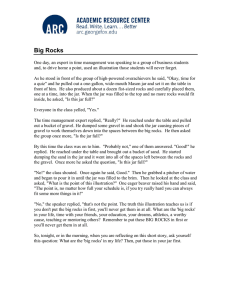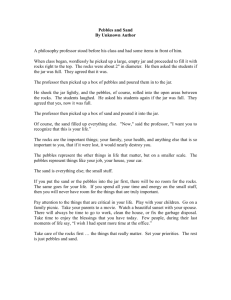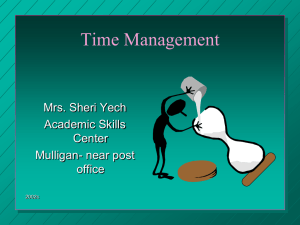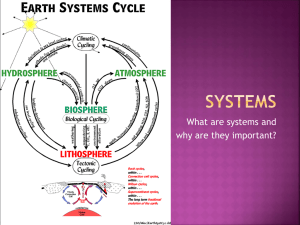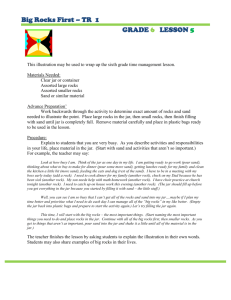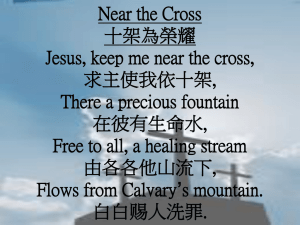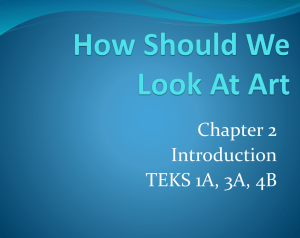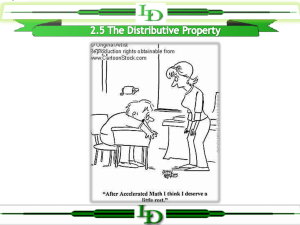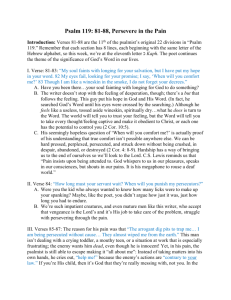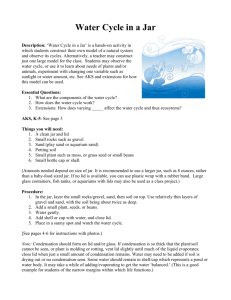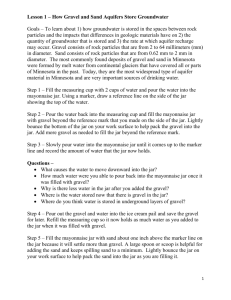Word .Doc
advertisement
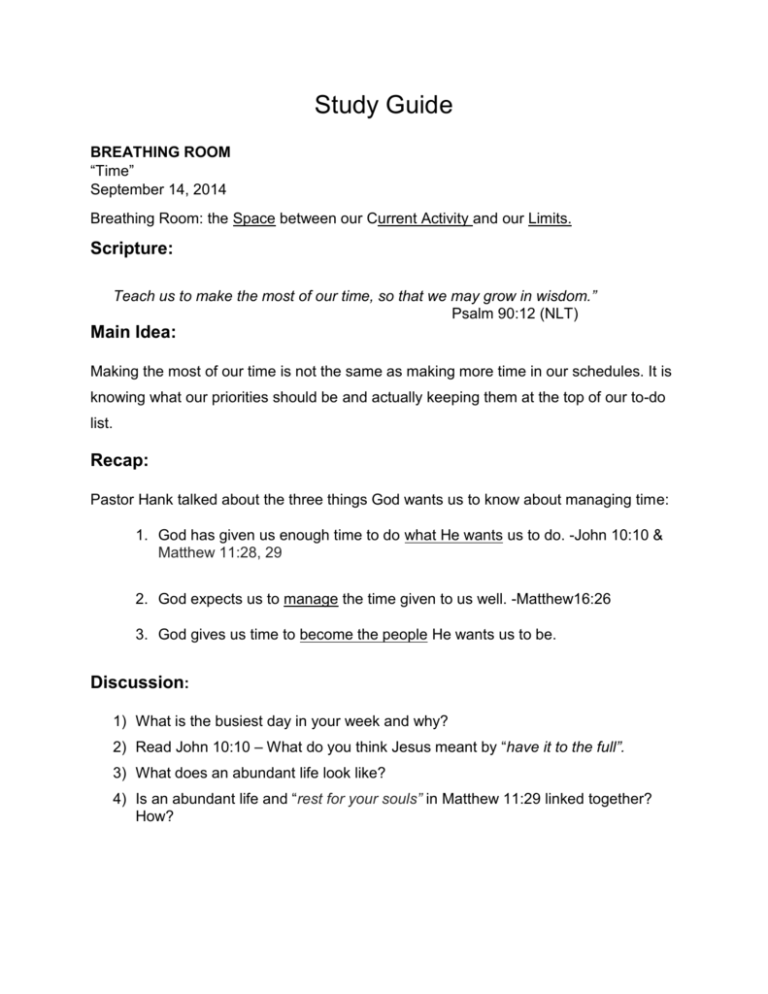
Study Guide BREATHING ROOM “Time” September 14, 2014 Breathing Room: the Space between our Current Activity and our Limits. Scripture: Teach us to make the most of our time, so that we may grow in wisdom.” Psalm 90:12 (NLT) Main Idea: Making the most of our time is not the same as making more time in our schedules. It is knowing what our priorities should be and actually keeping them at the top of our to-do list. Recap: Pastor Hank talked about the three things God wants us to know about managing time: 1. God has given us enough time to do what He wants us to do. -John 10:10 & Matthew 11:28, 29 2. God expects us to manage the time given to us well. -Matthew16:26 3. God gives us time to become the people He wants us to be. Discussion: 1) What is the busiest day in your week and why? 2) Read John 10:10 – What do you think Jesus meant by “have it to the full”. 3) What does an abundant life look like? 4) Is an abundant life and “rest for your souls” in Matthew 11:29 linked together? How? Deeper Look: Like most verses in the Bible there is a great ‘Back Story” to verse 12 in Psalm 90. Read verse 7 – 12 in Psalm 90. This is actually an old lament from the time when Israel wandered the desert for 40 years. It is a powerful Psalm that acknowledges who God is and the wrong the people of Israel committed against him. With that in mind, I would like to point out a couple words within verse 12 that might bring the verse into new light. The first is the word “Teach.” In Hebrew, this word is yâda‛ (yaw-dah'), which means “to instruct”, but it carries with it a reference that the instruction or lesson could be harsh or painful to learn. The second word is the Hebrew “mânâh” (maw-naw'), which means to count, but also carries an alternative reference “to prepare”. The last word is wisdom. Whenever you see the word wisdom in the Bible, it means more than just having knowledge. Wisdom is applied knowledge, literally using what you have learned. With this in mind let’s look at the verse again and consider these questions. 1. Looking at the verse again in this context and with the alterative emphasis; do you think the verse has both a present and future context? How? 2. How does learning from our mistakes affect future generations? 3. How does our “present priorities fit into this verse? “The question isn’t, “What do I want to get done in the next thirty days?” but, “Who do I want to become in this next season of my life?” Once we answer that key question, calendars and schedules are terrific tools for helping us accomplish our life goals.” -Bill Hybels, “Simplify” Family Friendly: Gather your children to talk to them about time management. Use this story and use a jar with large rocks, gravel, sand and water. Take the following story and adapt it to your family or situation: A while back I was reading about an expert on the subject of time management. One day this expert was speaking to a group of business students and, to drive home a point, he used an illustration I’m sure those students will never forget: As this man stood in front of the group of high-powered overachievers he said, “Okay, time for a quiz.” Then he pulled out a one-gallon, wide-mouthed mason jar and set it on a table in front of him. Next he produced about a dozen fist-sized rocks and carefully placed them, one at a time, into the jar. When the jar was filled to the top and no more rocks would fit inside, he asked, “Is this jar full?” Everyone in the class said, “Yes.” Then he said, “Really?” He reached under the table and pulled out a bucket of gravel. Then he dumped some gravel in and shook the jar causing pieces of gravel to work themselves down into the spaces between the big rocks. Then he smiled and asked the group once more, “Is the jar full?” By this time the class was onto him. “Probably not,” one of them answered. “Good!” he replied. And he reached under the table and brought out a bucket of sand. He started dumping the sand in and it went into all the spaces left between the rocks and the gravel. Once more he asked the question, “Is this jar full?” “No!” the class shouted. Once again he said, “Good!” Then he grabbed a pitcher of water and began to pour it in until the jar was filled to the brim. Then he looked up at the class and asked, “What is the point of this illustration?” One eager beaver raised his hand and said, “The point is, no matter how full your schedule is, if you try really hard, you can always fit some more things into it!” “No,” the speaker replied, “that’s not the point. The truth this illustration teaches us is: If you don’t put the big rocks in first, you’ll never get them in at all.” Now, talk to your kids about what the rocks, gravel, sand and water represent. These examples will depend on the age of the kids. Talk about things like faith and family. For older kids, you add school and extracurricular activities. What about a job? Then there is TV, video games, and playing with friends. Help your kids decide which item represents each thing in their lives. Remember to put the BIG ROCKS in first or you’ll never get them in at all.
